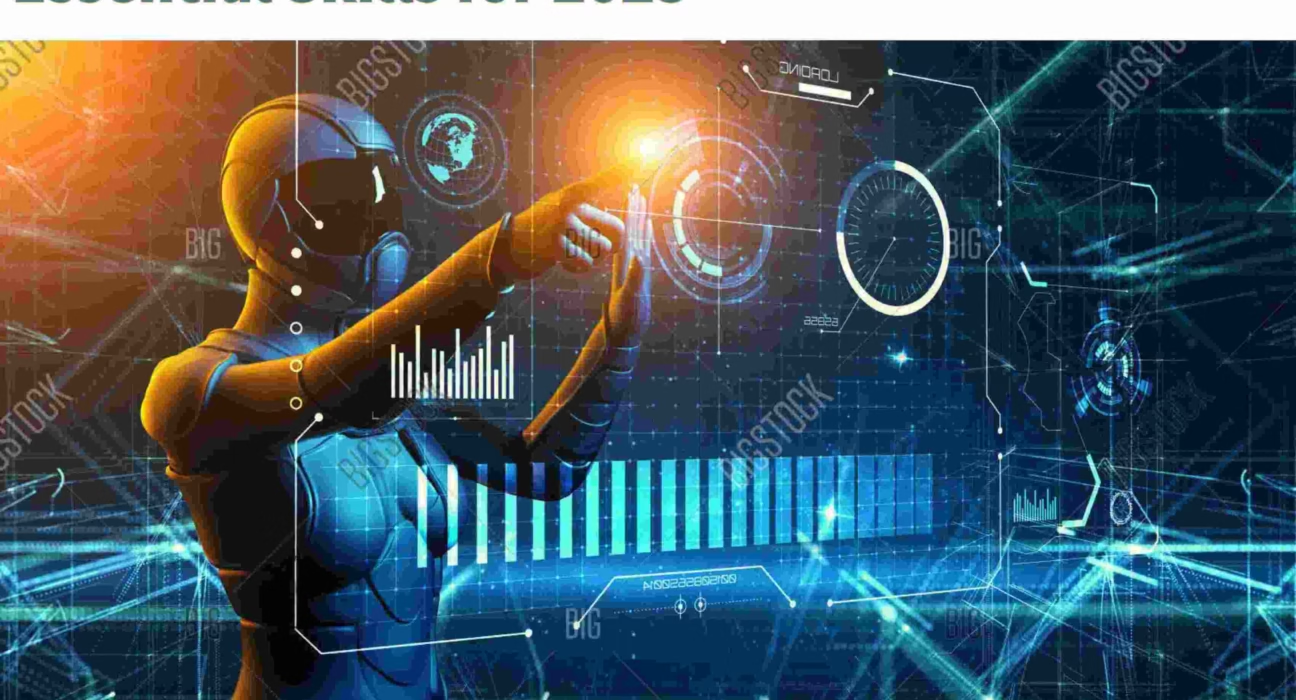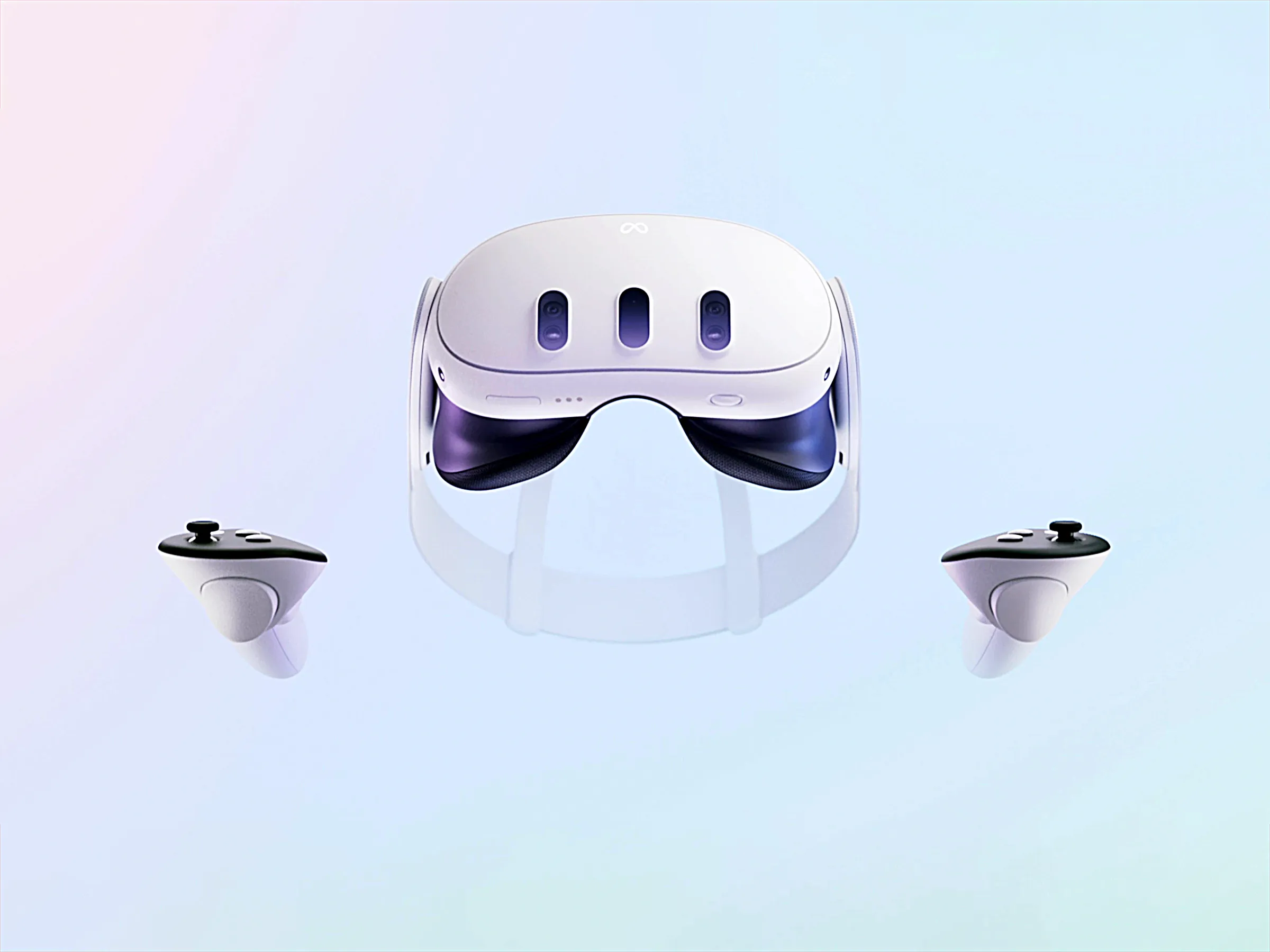“`html
Navigating the Future with Trending Technology Topics 2025
The world of technology is moving at an unprecedented pace. What seemed like science fiction just a few years ago is rapidly becoming our everyday reality. As we look towards 2025, the anticipation for the next wave of innovation is palpable. Staying informed about the most impactful **trending technology topics 2025** is no longer just about curiosity; it’s a strategic imperative for individuals and businesses aiming to thrive in an increasingly digital landscape.
This post will serve as your guide, exploring the **latest tech trends 2025** and pinpointing the **breakthrough technology innovations 2025** that are poised to redefine industries and reshape our daily lives. We’ll delve into the **future technology advancements** that you need to know about to stay ahead of the curve.
Estimated Reading Time
Approximately 15-20 minutes
Key Takeaways
- The AI revolution continues, with Generative AI evolving and Agentic AI emerging as a key trend for 2025.
- Extended Reality (XR), including AR and VR, is moving beyond entertainment into enterprise and consumer applications.
- Advanced connectivity, primarily driven by the expansion of 5G, is crucial for enabling other emerging technologies.
- Quantum computing is progressing from theory to practical applications, promising unprecedented processing power.
- Sustainable tech is gaining momentum, driven by environmental concerns and corporate responsibility.
- Biotech and Healthtech are converging to offer personalized medicine and novel therapeutic approaches.
- Cybersecurity is paramount, with Zero-trust models and AI playing critical roles in defense.
- Technology convergence is a meta-trend, amplifying the impact of individual innovations.
Table of Contents
- Introduction: Navigating the Future with Trending Technology Topics 2025
- Section 1: The AI Revolution: Evolving Intelligence and Autonomy
- Section 2: Extended Reality (XR) and the Maturing Metaverse
- Section 3: Advanced Connectivity: Powering the Digital Future with 5G
- Section 4: Quantum Computing: Bridging Theory and Application
- Section 5: Sustainable Tech: Driving the Green Revolution
- Section 6: Biotech and Healthtech: Innovations in Human Well-being
- Section 7: Cybersecurity: Fortifying Defenses in a Digital Age
- Section 8: Other Notable Trends Shaping the Future
- Section 9: The Power of Technology Convergence and Ethical Implementation
- Final Thought: Embracing the Future of Technology
Section 1: The AI Revolution: Evolving Intelligence and Autonomy
Artificial Intelligence (AI) continues its reign as the most dominant force in technological innovation. For 2025, we’re seeing a significant evolution beyond current capabilities. Generative AI, for instance, is poised to move beyond creating text and images to generating sophisticated audio, video, and even complex simulations with remarkable realism.
A defining trend for 2025 will be “Agentic AI.” This refers to AI systems designed to autonomously manage tasks, make decisions, and take actions to achieve specific goals with minimal human intervention. Think of intelligent agents that can coordinate complex projects, manage your schedule, or even conduct research on your behalf.
The integration of AI into everyday tools and business operations is accelerating. It’s estimated that AI is already driving 40% productivity gains across various organizations. This surge in efficiency is leading companies to build interdisciplinary teams dedicated to integrating AI. These teams are crucial for areas like supply chain automation, where AI can optimize logistics, and for enhancing customer personalization, delivering bespoke experiences that foster loyalty. As discussed in our guide, AI is fundamentally changing the world, and its impact will only grow in the coming year.

The demand for AI expertise is also skyrocketing, pushing the boundaries of what’s possible in the realm of **trending technology topics 2025**. This wave of innovation encompasses the **latest tech trends 2025**, including numerous **breakthrough technology innovations 2025** and **future technology advancements**.
Section 2: Extended Reality (XR) and the Maturing Metaverse
Extended Reality (XR), the encompassing term for Augmented Reality (AR), Virtual Reality (VR), and Mixed Reality (MR), is shedding its niche origins. Once primarily associated with gaming, XR is rapidly evolving into an indispensable tool for both enterprise and consumer markets in 2025.
We are witnessing the rise of “Virtual Reality 2.0,” characterized by significant improvements in display resolutions, more precise motion tracking, user-friendly headsets, and extended battery life. These advancements are collectively driving broader adoption, making VR experiences more immersive and accessible than ever before. Similarly, Augmented Reality is solidifying its position as a major tech trend. Innovations in AR glasses and the increasing capabilities of mobile devices are enabling more seamless integration of digital information into our physical world, offering enhanced experiences.

AR is set to revolutionize diverse sectors. In retail, imagine virtual try-ons for clothing or AR-powered product visualizations in your own home. Real estate can leverage AR for virtual property tours, while education can use it to create interactive learning environments. This technology is fundamentally changing how we interact with information and the world around us.
The emergence of hardware like Apple’s Vision Pro is pushing the boundaries of what’s possible, and the trend of “phygital convergence”—the seamless blending of virtual and physical experiences—is becoming increasingly prevalent. This is particularly evident in retail, where virtual try-ons and AI shopping assistants are enhancing the customer journey.
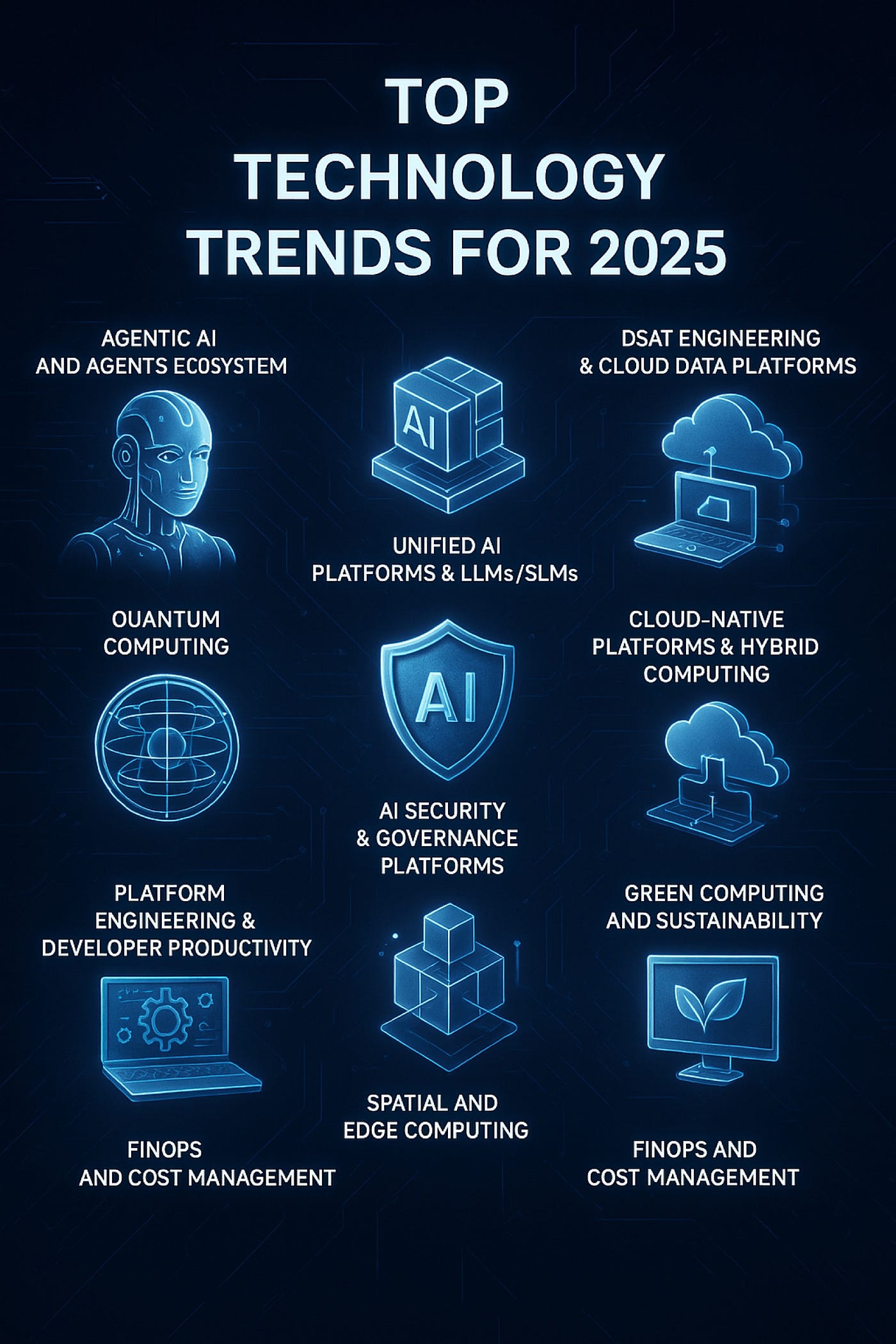
As these technologies mature, they become integral to the **trending technology topics 2025**. XR’s integration into various industries signifies the exciting possibilities within the **latest tech trends 2025** and **future technology advancements**.
The Meta Quest 3 stands as a prime example of these advancements in VR technology. Furthermore, XR is playing a vital role in the evolution of the smart home, a topic we explore in detail in our guide on the evolution of smart home technology.
Section 3: Advanced Connectivity: Powering the Digital Future with 5G
The continued expansion and refinement of 5G networks are foundational to many of the **trending technology topics 2025**. With its significantly faster speeds, wider coverage, and more stable connections, 5G is the critical enabler for a host of other burgeoning technologies, including the Internet of Things (IoT), Augmented Reality, and autonomous vehicles.
The growth projections for 5G are staggering; by 2027, it’s anticipated that over 4.4 billion subscriptions will be active worldwide. This widespread adoption underscores the competitive necessity for businesses to embrace 5G infrastructure. The technology is evolving beyond initial deployments, with a notable transition towards cloud-native 5G cores (5G SA). This shift is enabling the deployment of private 5G networks, particularly in industrial and logistical settings. These private networks are crucial for critical use cases such as Industry 4.0 automation and the operation of autonomous vehicles, where ultra-low latency and high reliability are paramount.
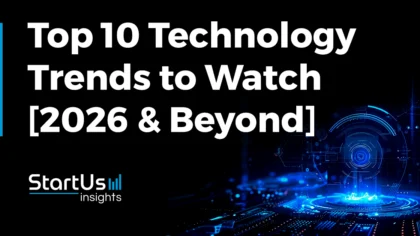
The impact of 5G is far-reaching, facilitating real-time virtual shopping experiences, enhancing AR navigation systems, and powering smart city initiatives. It’s being heralded as a true “game changer for society,” fundamentally altering how we live, work, and interact. As a cornerstone for many **future technology advancements**, 5G is intrinsically linked to the **latest tech trends 2025**.
The enhanced capabilities of 5G are essential for the seamless operation of many smart home devices, a connection we explore further in our article on the evolution of smart home technology. Moreover, the speed and responsiveness offered by 5G are critical for advancements in mobile gaming, as highlighted in our guide to the best smartphones for gaming in 2025.
Section 4: Quantum Computing: Bridging Theory and Application
Quantum computing is emerging as one of the most ambitious **breakthrough technology innovations** of our time, steadily transitioning from theoretical promise to tangible applications. While still in its nascent stages, its potential to revolutionize computation is immense.
At its core, quantum computing leverages the principles of quantum mechanics to perform calculations. Unlike classical computers that use bits representing either 0 or 1, quantum computers utilize qubits, which can represent 0, 1, or a superposition of both. This allows them to process certain types of problems exponentially faster than even the most powerful supercomputers.
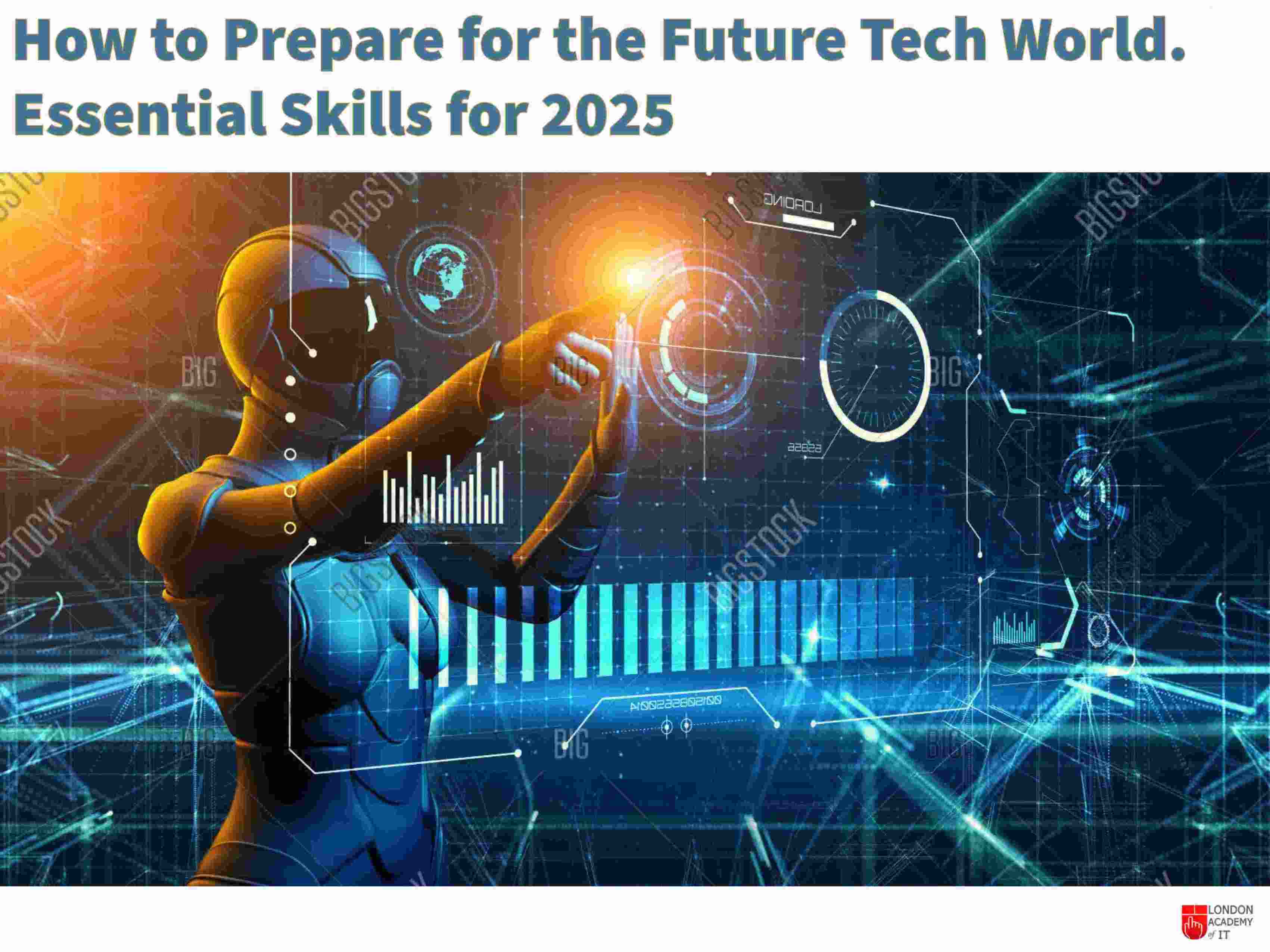
The potential applications are vast and transformative. In cryptography, quantum computers could potentially break current encryption methods, necessitating the development of quantum-resistant algorithms. In drug discovery, they can simulate molecular structures with unprecedented accuracy, accelerating the development of new medicines. In fact, quantum computers are capable of solving problems an astounding 100 million times faster than classical systems for specific tasks, signaling a profound shift for research and industry.
Significant investments are being poured into quantum development worldwide. Early adopters in fields such as materials science and financial modeling stand to gain a substantial competitive advantage as this technology matures. The ongoing advancements in quantum computing are a key part of the broader AI advancements we’re witnessing, as explored in our article on mind-blowing quantum breakthroughs.
The trajectory of quantum computing firmly places it among the **trending technology topics 2025**, representing truly **future technology advancements** and **breakthrough technology innovations 2025**.
Section 5: Sustainable Tech: Driving the Green Revolution
The imperative for sustainable technology is intensifying, driven by growing consumer awareness of environmental issues, evolving regulatory landscapes, and a stronger commitment to corporate social responsibility. In 2025, sustainable tech is no longer a niche concern but a mainstream driver of innovation.
Companies are increasingly leveraging technologies like IoT, AI, and blockchain to enhance sustainability across their operations. This includes optimizing supply chains for reduced environmental impact, improving waste management systems, and building more efficient and resilient energy grids. Innovations in renewable energy generation, advanced energy storage solutions, and sophisticated carbon tracking platforms are at the forefront of these **future technology advancements**.
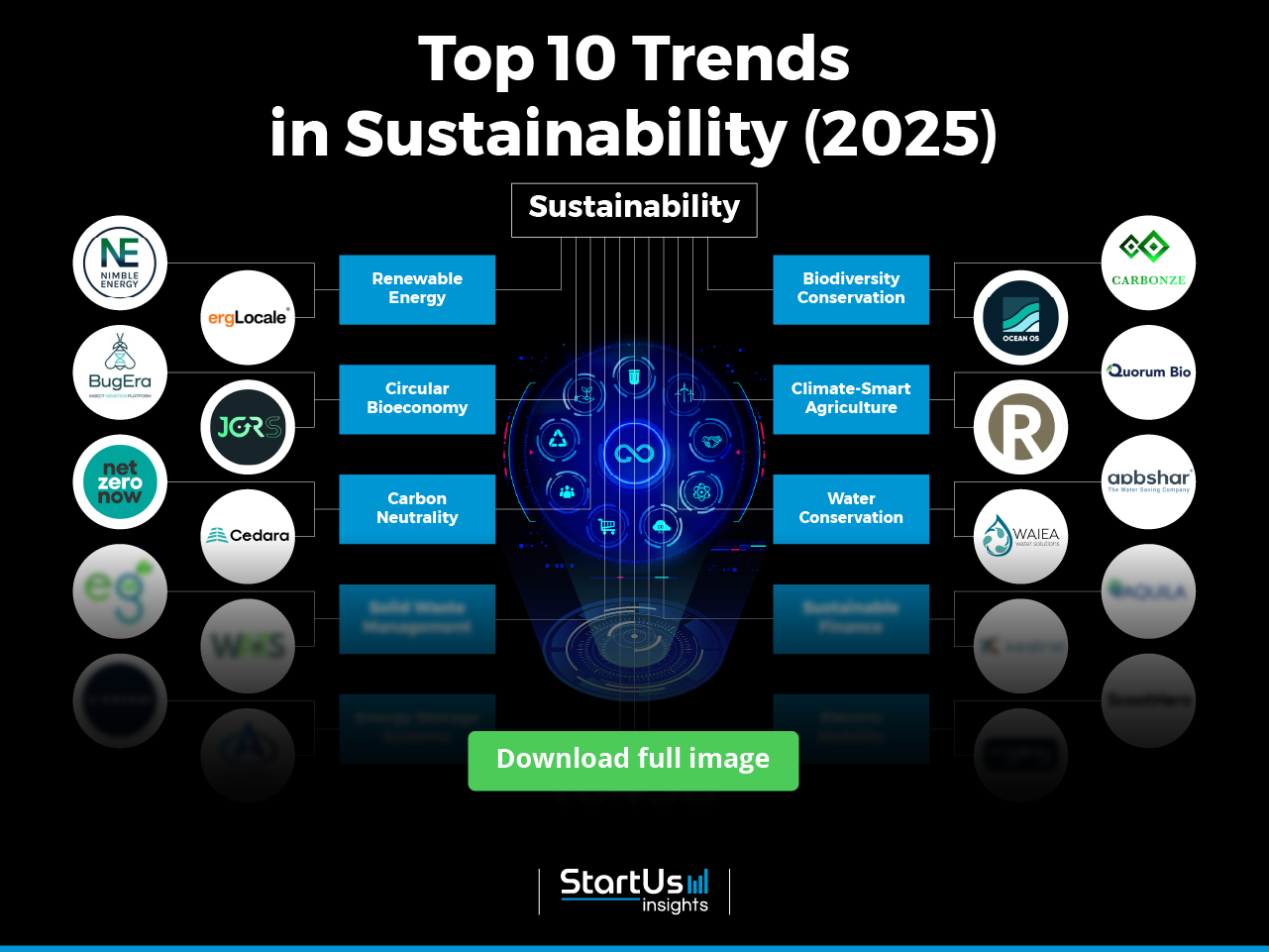
Sustainable technology is rapidly becoming a significant competitive advantage and a clear indicator of a company’s environmental stewardship. Emerging technologies such as advanced nuclear power, osmotic power generation, and the development of structural battery composites are on the cusp of making a real-world impact.
The focus on sustainability is influencing numerous technological domains, including the development of smart homes, as discussed in our article on AI in smart home devices. Sustainable practices are becoming integral to the **trending technology topics 2025**.
Section 6: Biotech and Healthtech: Innovations in Human Well-being
The convergence of biotechnology and healthcare is ushering in an era of unprecedented **breakthrough technology innovations** poised to revolutionize medicine and human well-being. Personalized medicine, driven by advancements in diagnostics and tailored treatments based on individual genetic profiles, is moving from concept to clinical practice.
A particularly exciting frontier is the development of engineered living therapeutics. These are novel treatments designed to function at the cellular level, offering new possibilities for tackling diseases previously considered intractable. This area represents a significant leap in therapeutic approaches.
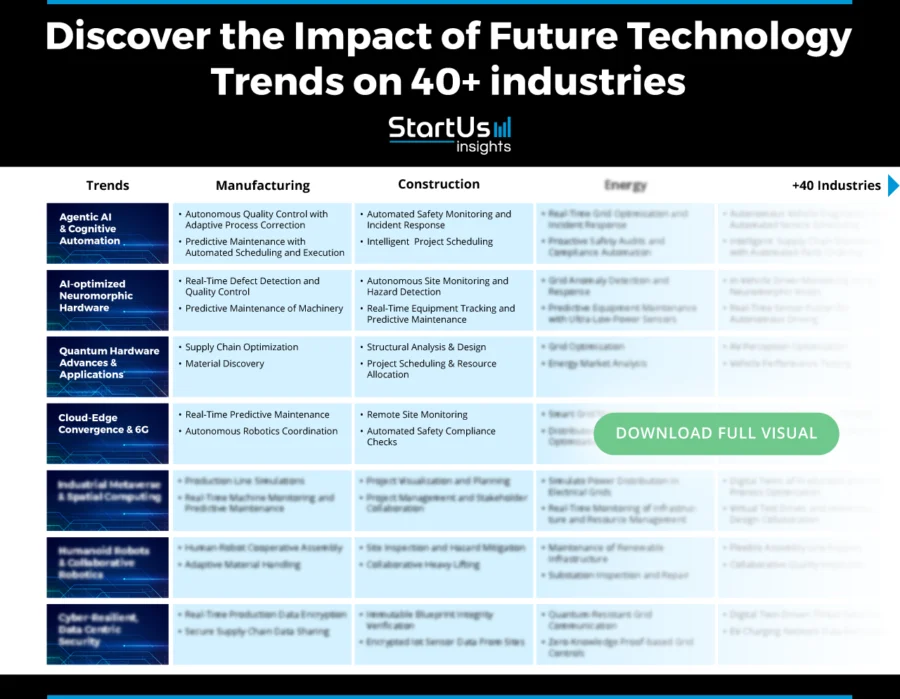
AI and advanced data analytics are playing a pivotal role in enhancing the capabilities of the healthtech sector. These technologies are improving predictive modeling for disease outbreaks, increasing the accuracy of diagnoses, and enabling more precise treatment personalization. Furthermore, the expansion of telemedicine continues unabated, supported by the increasing prevalence of wearable health monitors that empower individuals to track their health proactively and facilitate early detection of potential issues.
Wearable tech, including advanced health monitoring features, is a prime example of innovation in this space, as detailed in our look at the latest innovations in wearable tech. AI’s impact on healthtech is profound, as demonstrated by the revolutionary AI medical breakthroughs discussed in our guide on revolutionary AI medical breakthroughs in healthcare. These developments firmly position biotech and healthtech as key **trending technology topics 2025**.
Section 7: Cybersecurity: Fortifying Defenses in a Digital Age
As digital transformation accelerates and cyber threats become increasingly sophisticated, cybersecurity is not merely an IT concern but a mission-critical imperative for organizations and individuals alike. In 2025, the “Zero-trust cybersecurity” model is emerging as the gold standard. This approach fundamentally shifts from traditional perimeter-based defenses to a continuous verification model, assuming that no user or device can be implicitly trusted, regardless of their location.
AI is playing an indispensable role in enhancing cybersecurity defenses. It is instrumental in advanced threat detection, enabling automated responses to security incidents, and providing predictive analysis to anticipate and mitigate potential attacks before they occur. The integration of AI into cybersecurity strategies is a critical aspect of staying ahead of evolving threats.

Trust and safety are paramount considerations for the successful adoption and widespread implementation of any new technology. In an increasingly interconnected world, ensuring the security and privacy of data and systems is fundamental to building confidence and fostering innovation. This focus on security is integral to the **latest tech trends 2025**.
Robust cybersecurity measures are essential for protecting our digital lives, as detailed in our guide on how to stay safe and secure online. This also extends to the security of interconnected environments like smart homes, where safeguarding against cyber threats is crucial, as discussed in our article on how to protect smart homes from cyber threats. Cybersecurity remains a critical component of the **trending technology topics 2025**.
Section 8: Other Notable Trends Shaping the Future
Beyond the headline-grabbing advancements, a spectrum of other significant **trending technology topics 2025** are quietly but powerfully shaping our future:
- Internet of Things (IoT) and Internet of Everything (IoE): The network of connected devices continues to expand, powering everything from smart cities with optimized infrastructure to sophisticated industrial automation systems.
- Edge Computing: This trend involves processing data closer to where it’s generated, significantly reducing latency and enabling real-time decision-making for autonomous systems and time-sensitive applications.
- Advanced Robotics: Robotics are moving beyond traditional manufacturing roles, becoming more sophisticated and versatile, finding applications in logistics, healthcare, and even domestic environments.
- Digital Twins: These virtual replicas of physical assets or systems are invaluable for simulation, performance optimization, and predictive maintenance, offering insights that drive efficiency and cost savings.
- Synthetic Media: The rise of AI-generated content, including deepfakes, presents both opportunities for creative expression and challenges related to authenticity and misinformation.
- Voice-Activated Technology: Natural language processing is becoming more advanced, making voice interfaces more intuitive and ubiquitous across a range of devices and services.
- Space Tourism and Exploration Technologies: Driven by commercial initiatives, advancements in space travel are opening new frontiers for exploration and potentially, tourism.
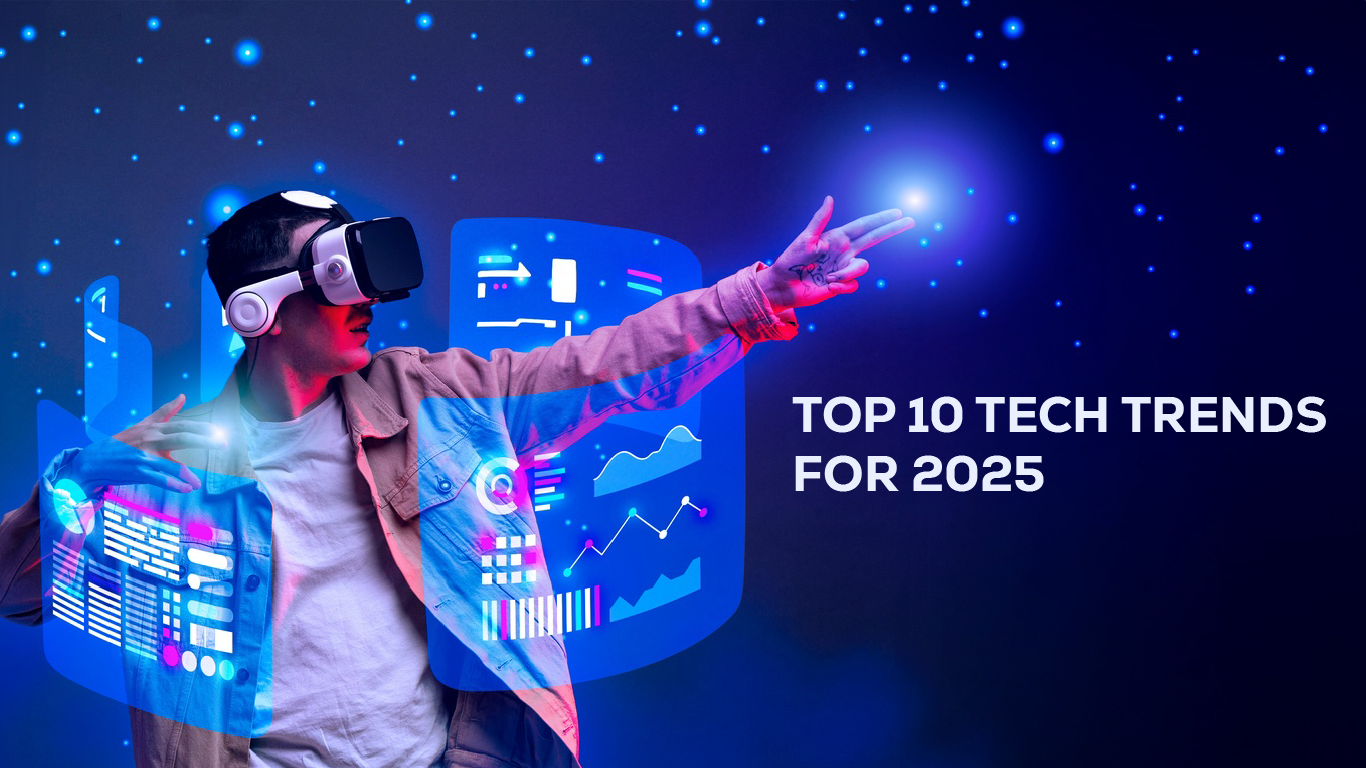
The Internet of Things is a fundamental enabler for smart home technology, as explored in our guide to the best smart home devices of 2025. AI is a pervasive force across many of these emerging areas, from enhancing robotic capabilities to creating synthetic media, as discussed in our overview of 10 cutting-edge AI technologies. These interconnected developments highlight the dynamism of **future technology advancements** and the breadth of **trending technology topics 2025**.
Section 9: The Power of Technology Convergence and Ethical Implementation
Perhaps the most significant meta-trend of 2025 is “technology convergence.” This is where multiple distinct technologies intersect and combine to create synergistic effects far greater than the sum of their parts. We see AI merging with biology to create new therapies, novel materials revolutionizing clean energy solutions, and 5G acting as the connective tissue enabling the vast potential of IoT. This convergence is a powerful catalyst for innovation.
However, harnessing the immense power of these **breakthrough technology innovations** requires careful consideration of ethical implementation. Organizations face complex challenges in ensuring that new technologies are deployed responsibly, with due attention to security, privacy, and societal impact. The ethical implications of AI, data usage, and automation are becoming increasingly critical as these technologies become more embedded in our lives.
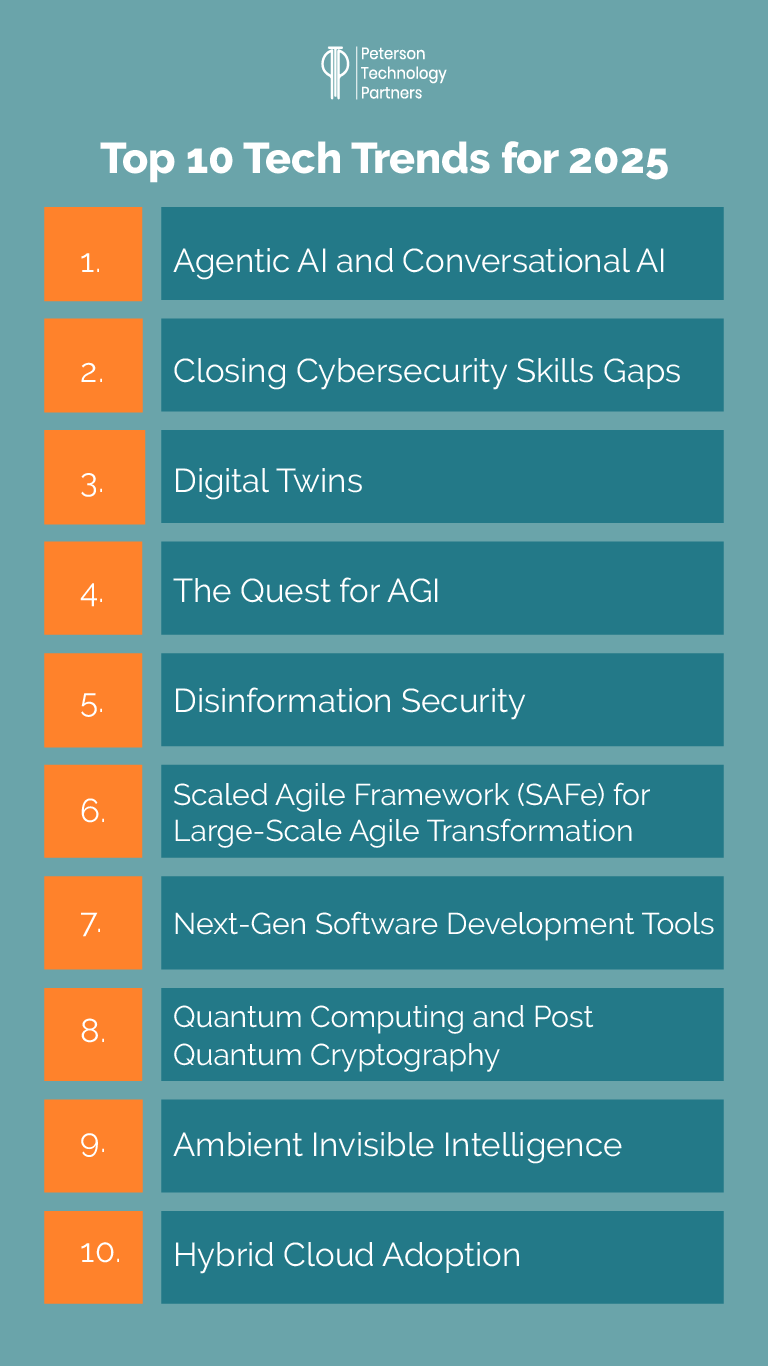
Successful integration of these advanced technologies demands thoughtful planning and execution. It requires a holistic approach that considers not only operational efficiency and competitive advantage but also the long-term sustainability and societal implications. Addressing these challenges is vital for realizing the full, positive potential of technological progress.
Understanding and navigating the ethical dimensions of technology is paramount, particularly concerning AI. Our guide on AI regulations and responsible development delves into these crucial considerations. The interplay of various technologies underscores the importance of understanding **breakthrough technology innovations 2025**, **trending technology topics 2025**, and **future technology advancements**.
Final Thought: Embracing the Future of Technology
As we’ve explored, 2025 is set to be a landmark year for technology, marked by significant advancements across AI, XR, connectivity, quantum computing, sustainability, healthtech, and cybersecurity. These **trending technology topics 2025** are not isolated developments; they are interconnected **breakthrough technology innovations 2025** that promise to reshape our world in profound ways. Staying informed about these **future technology advancements** is essential for navigating the rapidly evolving technological landscape.

We encourage you to actively explore these trends and consider their potential impact on your personal and professional life. The pace of innovation is accelerating, and embracing these changes is key to staying relevant and competitive.
Which of these trends are you most excited to see develop further by the end of 2025 and beyond?
For those eager to delve deeper into the evolving technological landscape, our comprehensive guide provides valuable insights into navigating these changes. Navigating the evolving technology landscape is crucial for staying ahead. Exploring emerging technologies is the best way to prepare for what’s next, as highlighted in our overview of top emerging technologies and AI trends for 2025.

Frequently Asked Questions
What are the most significant trending technology topics for 2025?
The most significant trends include the continued AI revolution (Generative and Agentic AI), Extended Reality (XR), advanced 5G connectivity, quantum computing, sustainable tech, biotech/healthtech innovations, and robust cybersecurity measures.
How is AI evolving in 2025?
AI is evolving with more sophisticated Generative AI capabilities and the emergence of Agentic AI systems designed for autonomous task management. Its integration into business operations is driving significant productivity gains.
What is the role of 5G in future technology advancements?
5G is a foundational technology enabling other advancements. Its high speeds, low latency, and wide coverage are critical for IoT, AR, autonomous vehicles, and real-time applications, making it a key driver for future tech.
How is quantum computing expected to impact industries?
Quantum computing has the potential to revolutionize fields like cryptography, drug discovery, materials science, and financial modeling by solving complex problems exponentially faster than classical computers. It represents a major leap in processing power.
Why is sustainable technology becoming increasingly important?
Sustainable technology is driven by growing environmental concerns, regulatory pressures, and a desire for corporate social responsibility. It’s becoming a competitive advantage and a necessity for long-term viability.
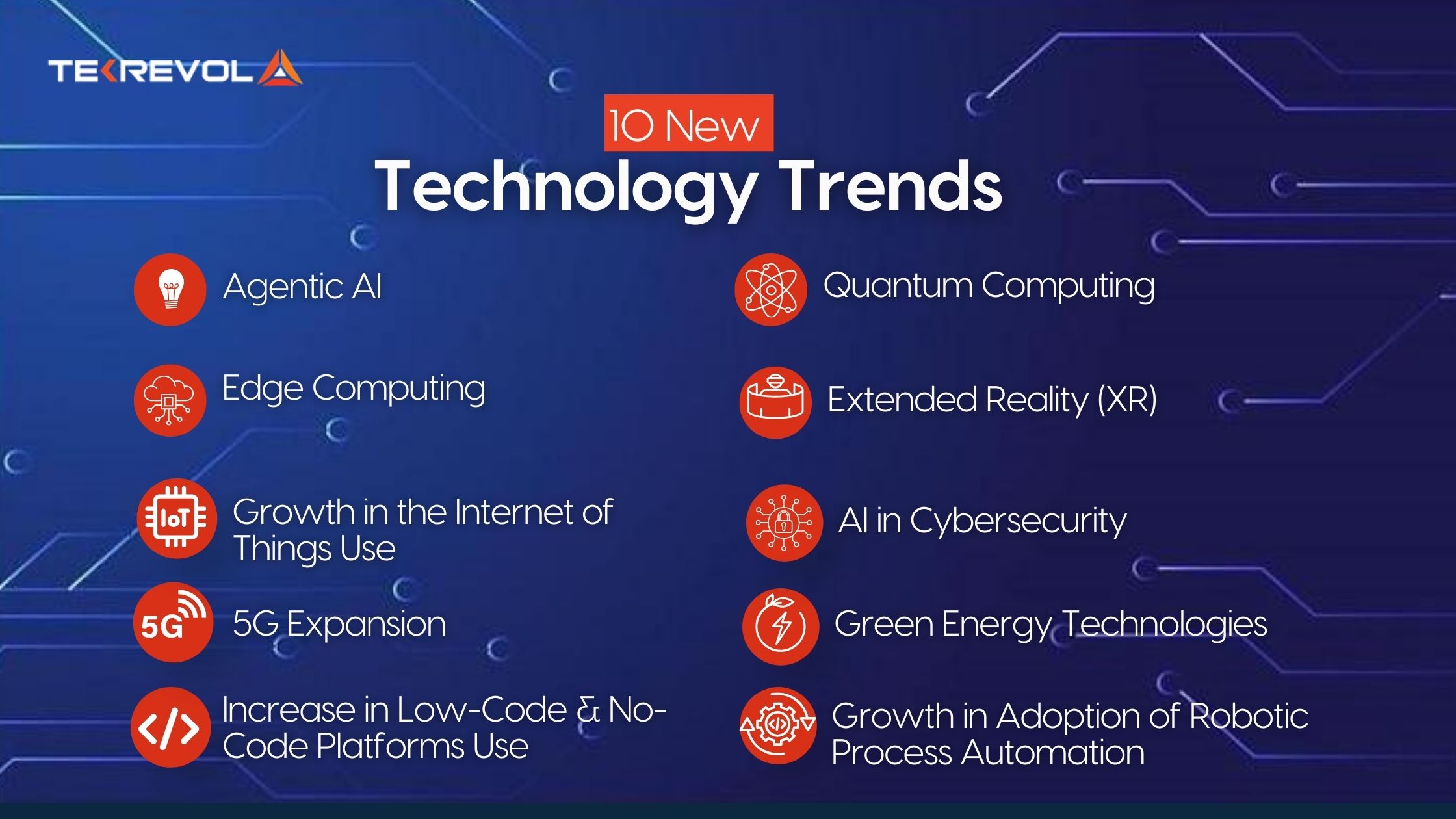
“`


